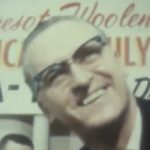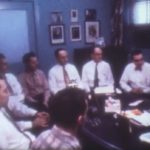Fashion Wagon – Minnesota Woolen
A vintage flannel caught my eye this afternoon while taking a break from work and strolling into the Wise Buys thrift store in Bellingham, Wash. I was shocked to see “Duluth, Minnesota” on the tag. Does anyone know where this was located? I have never heard of it before.
A quick Google search shows the trademark was registered around 1960 and expired in 1987.
My arms are still itching from trying the shirt on.
Recommended Links:
Leave a Comment
Only registered members can post a comment , Login / Register Here















40 Comments
leefr
about 11 years agohbh1
about 11 years agoTimK
about 11 years agoPaul Lundgren
about 11 years agoPaul Lundgren
about 11 years agoPaul Lundgren
about 11 years agoAmanda Soberg
about 11 years agoPaul Lundgren
about 11 years agoTimK
about 11 years agoPaul Lundgren
about 11 years agoPaul Lundgren
about 11 years agoPaul Lundgren
about 11 years agoPaul Lundgren
about 11 years agoTimK
about 11 years agoRamos
about 11 years agoRamos
about 11 years agoPaul Lundgren
about 11 years agoNiff Bimrod
about 11 years agoemmadogs
about 11 years agoemmadogs
about 11 years agoPaul Lundgren
about 11 years agoPaul Lundgren
about 11 years agoPaul Lundgren
about 11 years agoPaul Lundgren
about 11 years agoGTR
about 11 years agoPaul Lundgren
about 11 years agoemmadogs
about 11 years agoPaul Lundgren
about 11 years agofreilaufer
about 11 years agoPaul Lundgren
about 11 years agoPaul Lundgren
about 11 years agoemmadogs
about 11 years agoPaul Lundgren
about 11 years agoPaul Lundgren
about 11 years agoTommy Krebs
about 11 years agoSteve Kalland
about 11 years agoPaul Lundgren
about 10 years agoSandy Leeson
about 8 years agoPaul Lundgren
about 7 years agoPaul Lundgren
about 6 years ago